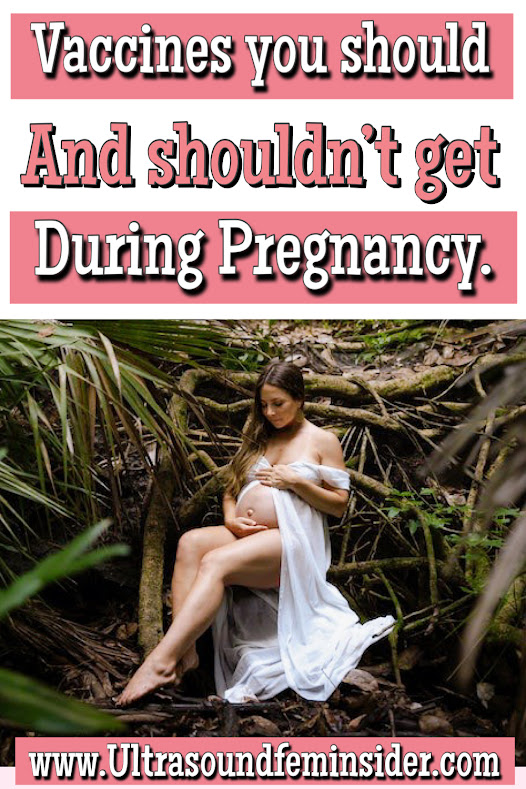Pregnancy is a critical time for both the mother and the developing fetus, and protecting the health of both is of utmost importance. One way to achieve this is through vaccines, which can help prevent serious illnesses that could harm both the mother and the baby. However, not all vaccines are safe to receive during pregnancy. In this blog post, we’ll discuss the vaccines you should and should not get during pregnancy. Ready? Let’s begin.
Why is Important to Know Which Vaccines You Should and Shouldn’t Get During Pregnancy?
Pregnancy is a unique state where the immune system of the mother undergoes changes to support the growth and development of the fetus. This altered immune response can affect how vaccines work and how they are tolerated during pregnancy. As a result, some vaccines are safe to receive during pregnancy, while others are not.
The safety of a vaccine during pregnancy depends on several factors, such as the type of vaccine, the stage of pregnancy, and the potential risk to the mother and developing fetus. Some vaccines, such as the influenza and Tdap vaccines, have been extensively studied and have been shown to be safe and effective during pregnancy. While others contain live viruses or other components that may not be safe for the developing fetus. These vaccines are generally not recommended during pregnancy because of the theoretical risk of causing harm to the developing baby.
Overall, the decision to receive a vaccine during pregnancy should be made on a case-by-case basis in consultation with a healthcare provider. The healthcare provider can assess the potential risks and benefits of the vaccine and make a recommendation based on the individual circumstances of the pregnancy.
Why is the immune system suppressed during pregnancy?
During pregnancy, a woman’s immune system undergoes changes that allow for the growth and development of the fetus without triggering an immune response that would result in rejection of the pregnancy. These changes can be thought of as an “immune tolerance” mechanism that is necessary to prevent the mother’s immune system from attacking the developing fetus as foreign tissue.
One of the ways in which the immune system is suppressed during pregnancy is through the production of hormones such as progesterone and estrogen, which can inhibit certain components of the immune response. For example, these hormones can suppress the production of cytokines, which are signaling molecules that are important for activating immune cells and coordinating the immune response.
In addition, the placenta, which is the organ that connects the developing fetus to the mother’s blood supply, also plays a role in suppressing the immune response. The placenta produces molecules that can inhibit the activity of certain immune cells, preventing them from attacking the developing fetus.
While the suppression of the immune system during pregnancy is necessary to support the growth and development of the fetus, it can also make the mother more susceptible to certain infections. For this reason, it is important for pregnant women to take precautions to avoid exposure to infectious agents and to receive appropriate vaccinations to protect themselves and their developing babies from serious infections.
Share this article.
Below there is a list of the Vaccines you Should and Shouldn’t Get During Pregnancy.
Vaccines you should get during pregnancy:
- Influenza vaccine: The flu can be dangerous for pregnant women, and getting the flu vaccine during pregnancy can help protect both the mother and the baby. Pregnant women should get the flu vaccine during any trimester of pregnancy.
- Tdap vaccine: The Tdap vaccine protects against tetanus, diphtheria, and pertussis (whooping cough). It is recommended that pregnant women get the Tdap vaccine between 27 and 36 weeks of pregnancy to protect their newborns from pertussis.
- COVID-19 vaccine: With the ongoing COVID-19 pandemic, it is recommended that pregnant women get vaccinated against COVID-19. According to the Centers for Disease Control and Prevention (CDC), the COVID-19 vaccine is safe and effective for pregnant women and can protect both the mother and the baby.
Vaccines you shouldn’t get during pregnancy:
- Live vaccines: Live vaccines contain weakened but live virus or bacteria and are not recommended during pregnancy. This includes the MMR (measles, mumps, and rubella) vaccine, the chickenpox vaccine, and the yellow fever vaccine.
- HPV vaccine: The human papillomavirus (HPV) vaccine is not recommended during pregnancy. It is safe to get the HPV vaccine before pregnancy, or after giving birth.
- Meningococcal vaccine: The meningococcal vaccine is not routinely recommended during pregnancy, but it may be given to pregnant women who are at high risk for meningococcal disease.
Other articles you might like to read:
Pelvic pain in women. Role of ultrasound diagnosing pelvic pain.
Tips for a healthy pregnancy. Pregnancy guidelines.
Everything About Yeast Infection.
Migraines During Pregnancy. Remedies that Actually Works.
When to Have Sex to Get Pregnant Faster?
Kick Counts During Pregnancy. How to do it and Why is Important.
Routine Prenatal Screening and Tests During Pregnancy.
Final thoughts about vaccines you should and shouldn’t get during pregnancy.
In conclusion, vaccines are an essential tool in protecting the health of both the mother and the developing fetus during pregnancy. Getting the influenza and Tdap vaccines during pregnancy is recommended to protect both the mother and baby. However, certain vaccines, such as the MMR, varicella, and HPV vaccines, should be avoided during pregnancy. As always, consult with your healthcare provider to determine which vaccines are safe for you during pregnancy.
Zadi, xo
Disclaimer: The medical information on this post is for educational and entertainment use only. Under no circumstances, this information is to replace your doctor’s advice or to treat any disease. For proper care, always visit your doctor.










